The Important Role of Water Pumps in a Home
Water pumps are vital for modern living, from clean drinking water to irrigation.
Water pumps play a significant and indispensable role in maintaining the efficient and continuous water flow in residential properties. Water pumps are vital for modern living, from clean drinking water to irrigation.
In this blog, we discuss the role of water pumps in residential settings and provide practical advice on choosing the right pump for specific needs.
Understanding the Significance of Water Pumps
Water pumps are designed to move water from one location to another. They consist of a motor and an impeller that propels the water forward by creating pressure and suction. Based on function and application, water pumps can be categorized into types, such as residential, agricultural, and industrial.
Importance of Water Pumps in Residential Settings
Water pumps serve a wide range of purposes in residential properties. Here are the essential roles water pumps play:
Water Supply
Water pumps help extract water from various sources, such as wells, underground sources, or water storage tanks, and deliver it to different parts of the residence. They provide a continuous, reliable water supply.
Water Pressure
Maintaining adequate water pressure is essential in multi-story buildings or areas with low water pressure. Water pumps are often necessary to increase the force to deliver water, ensuring a strong and consistent flow to the taps, showers, toilets, and appliances.
Irrigation
Water pumps are essential for efficient irrigation for homeowners with gardens or lawns. They facilitate the distribution of water, ensuring that plants receive the required amount for optimal growth.
Drainage
Water pumps can also be used for drainage purposes, especially in areas prone to flooding or where water needs to be removed from basements, pools, or construction sites. They help prevent water damage and create a drier and safer environmental space.
Types of Water Pumps for Residential Use
When selecting a water pump for a residential property, it is crucial to consider specific needs and requirements. Here are some common types of water pumps used in residential settings:
Centrifugal Pump
Centrifugal pumps are the most commonly used type of water pump in residential settings. They use rotating impellers to push water outward, creating pressure and moving water through the system. Centrifugal pumps are suitable for water supply, irrigation, and drainage applications.
Submersible Pumps
Submersible pumps are designed to fully submerge in water, making them ideal for deep well applications. They deliver water from deeper sources more efficiently and require less maintenance than other pumps.
Jet Pumps
Jet pumps are often used in shallow well applications or where the water source is near the surface. They rely on suction to draw water from the source and are often used with a pressure tank to maintain consistent water pressure.
Booster Pumps
Booster pumps increase water pressure in areas with low water pressure. They can be installed in line with the existing water supply system to enhance water flow and ensure sufficient pressure for multiple fixtures.
Factors to Consider When Choosing a Water Pump
Choosing the right water pump for a residential property requires careful consideration of various factors. Key points to consider include:
Water Source
Determine whether the water source is a well, underground, or storage tank. The depth of the water source will influence the type of pump required.
Water Consumption
Consider the water consumption requirements, including the number of fixtures, appliances, and irrigation systems connected to the pump. This step will help determine the required flow rate and pressure.
Pump Capacity
Ensure that the pump's capacity matches the water consumption needs. An undersized pump may result in inadequate water supply, while an oversized pump may lead to unnecessary energy consumption.
Power Source
Determine the pump's available power source. Some pumps are powered by electricity, gas, or solar energy. Choose a pump that is compatible with the available power source.
Maintenance and Durability
Consider the pump's maintenance requirements and durability. Look for pumps constructed with quality materials and a good track record of reliability. Easy maintenance and spare parts availability should also be considered.
Installation and Maintenance of Water Pumps
Precise installation and routine maintenance contribute to the efficient and long-lasting operation of water pumps. Follow these guidelines to ensure optimal performance:
Professional Installation
Unless experienced in pump installation, homeowners are encouraged to hire a licensed plumber or technician to ensure correct installation and connection to the water supply system. Imperfect installation can lead to leaks, reduced performance, and potential damage to the pump.
Regular Inspection
Homeowners should regularly inspect the pump for damage, leaks, or unusual noises. They should also check the connections, valves, and fittings for proper functioning and tightness. These inspections can help them identify issues before major repairs are needed.
Maintenance Schedule
Follow the manufacturer's recommended maintenance schedule. They may recommend tasks such as cleaning or replacing filters, lubricating moving parts, checking electrical connections, and inspecting the impeller. Regular maintenance prolongs the pump's life and ensures optimal performance.
Safety Precautions
Always disconnect the power supply and follow appropriate safety measures when performing maintenance tasks. Mishandling pumps or neglecting safety protocols can be hazardous.
Water pumps are crucial in maintaining a reliable and efficient water supply in residential properties. Choosing the right water pump is essential for drinking water, irrigation, pressure, or drainage. By understanding the property's specific needs, considering the different types of pumps available, and following proper installation and maintenance practices, residents can ensure that their water pumps operate optimally and provide the functions necessary for their homes.
As a trusted quality well service with over three decades of experience, Pump Repair Services understand how to install and repair well pumps in Orlando. Our trained and certified technicians specialize in well pump repair, transfer pump repair, irrigation pump repair, and centrifugal pump repair. We can meticulously handle all pump-related issues. Call us for the best service experience.

